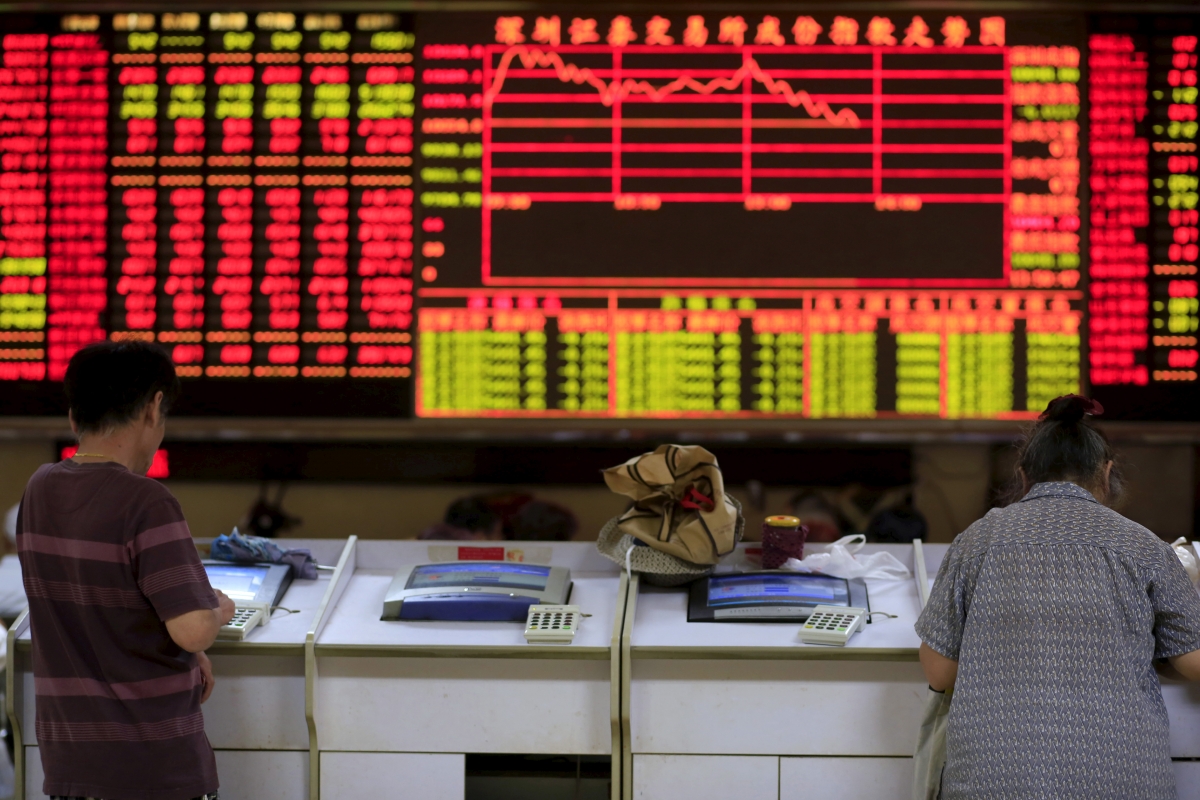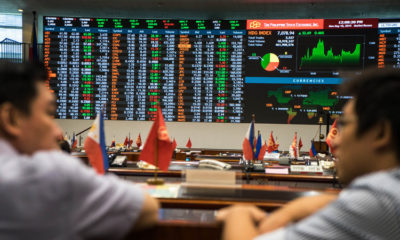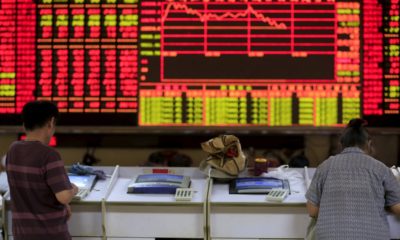- Asian Stocks Gain on Move by China’s Central Bank, but Trade War Weighs
Asian stocks rose on Monday after China’s central bank took steps to try to drag the yuan away from 14-month lows, but the tit-for-tat conflict over Sino-U.S. trade hung heavily on markets.
The People’s Bank of China late on Friday raised the reserve requirement on foreign exchange forward positions, making it more expensive to bet against the Chinese currency.
The move boosted the Australian dollar, which is often played as a liquid proxy for the yuan. The Aussie came off two-week lows to climb as high as $0.7412 after the announcement, and was last at $0.7396.
Analysts say the step by the PBOC will be generally positive for Asian assets.
“Leaning against bearish CNY sentiment is important because a rapidly weakening currency risks triggering residential outflows and destabilizing domestic asset prices,” JPMorgan analysts said in a note.
“Our economists think that PBOC likely will take further action if CNY depreciation continues or capital outflow pressure increases.”
On Monday, MSCI’s broadest index of Asia-Pacific shares outside Japan climbed 0.2 percent for a second straight session of gains.
Japan’s Nikkei edged up 0.1 percent, while Australian shares added 0.5 percent. South Korea’s KOSPI index rose 0.4 percent.
On Wall Street, the Dow climbed 0.54 percent, the S&P 500 gained 0.46 percent and the Nasdaq Composite added 0.12 percent. They were helped by strong corporate earnings, although gains were capped by worries over the escalating trade tensions.
China’s finance ministry proposed tariffs on $60 billion worth of U.S. goods on Friday, while a senior Chinese diplomat cast doubt on prospects of talks with Washington to resolve the bitter trade conflict.
That was followed by a report in China’s state media saying Friday’s retaliatory tariffs were “rational” while accusing the United States of blackmail.
At the same time, U.S. President Donald Trump said his strategy of placing steep tariffs on Chinese imports is “working far better than anyone ever anticipated”, citing losses in China’s stock market. He predicted the U.S. market could “go up dramatically” once trade deals were renegotiated.
“Our economists consider that escalation in tension may bring the U.S. and China back to the negotiation table, but that even if negotiations are resumed, a bumpy and lengthy process is likely to ensue as the two sides remain very far apart,” JPMorgan added.
According to Bespoke Investment Group, mentions of tariffs in S&P 500 company earnings reports for the second quarter have more than doubled from the first quarter of this year.
In currencies, the dollar index, which measures the greenback against a basket of six other currencies, was up 0.1 percent at 95.259.
Traders see further upside in the dollar as they maintained a significantly large long position on the currency, while net short bets on the Aussie were their largest since November 2015.
The British pound held at $1.30 after falling to an 11-day low of $1.2975 following remarks by Bank of England Governor Mark Carney that Britain faced an “uncomfortably high” risk of a “no deal” Brexit.
The euro inched down to more than 5-week lows of $1.1573.
Gold bounced from near 17-month lows after weaker-than-expected U.S. jobs data, and was last up 0.1 percent at $1,213.70.
Meanwhile, Brent crude futures were off 2 cents at $73.19, while U.S. crude oil futures were up 9 cents at $68.58 a barrel.



 Naira4 weeks ago
Naira4 weeks ago


 Naira3 weeks ago
Naira3 weeks ago


 News4 weeks ago
News4 weeks ago
 Travel4 weeks ago
Travel4 weeks ago




 Naira4 weeks ago
Naira4 weeks ago


 Jobs3 weeks ago
Jobs3 weeks ago
 Naira3 weeks ago
Naira3 weeks ago


 Travel3 weeks ago
Travel3 weeks ago




















